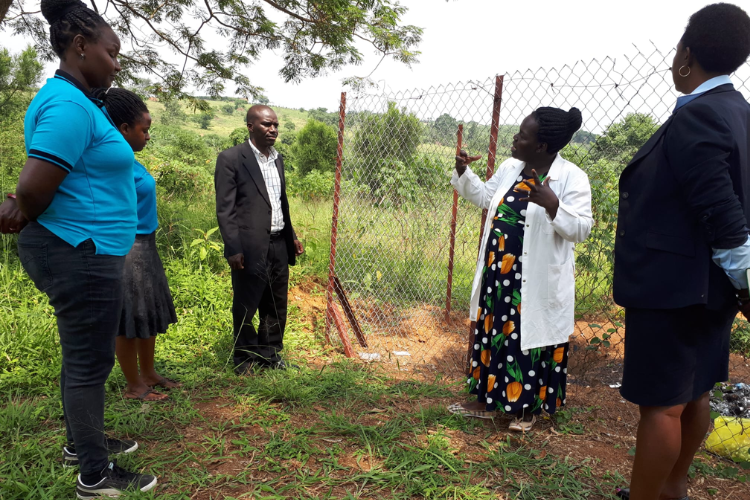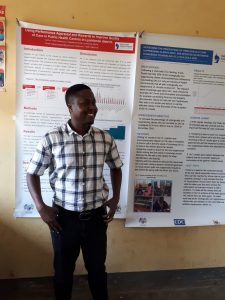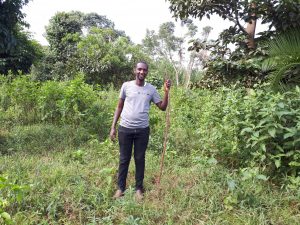
Empowering Communities in Uganda: The Impact of the University’s Partnership with the Mildmay Institute of Health Sciences
With infectious disease being a leading cause of death in Uganda, as well as various other socio-economic adversities, the collaborative partnership between the University and the Mildmay Institute of Health Sciences (MIHS), has brought about a transformation in the delivery of healthcare education and community empowerment.
MIHS (formerly Mildmay Uganda) was established in 1998 as a higher education institute, originally providing short courses to address HIV/AIDs care and treatment in Uganda. Now offering a whole host of academic programmes, they have adopted a holistic approach to address Uganda’s most pressing healthcare challenges, with an emphasis on hands-on education and research across the classroom, laboratory and community settings.
 The University’s collaboration with MIHS began in 2001, now validating their 2-year Diploma/BSc (Hons) Health and Social Systems Management programme, which has seen 271 graduates since 2012. Recognising the need for a comprehensive approach to HIV/AIDs care to reduce mortality rates, former University alumnus, Catherine O’Keefe, developed a programme empowering local communities in Kenya to deliver essential home-based care beyond hospital walls. The programme was adopted in Uganda and has since evolved to provide students with a systems-based approach to managing various conditions and health challenges.
The University’s collaboration with MIHS began in 2001, now validating their 2-year Diploma/BSc (Hons) Health and Social Systems Management programme, which has seen 271 graduates since 2012. Recognising the need for a comprehensive approach to HIV/AIDs care to reduce mortality rates, former University alumnus, Catherine O’Keefe, developed a programme empowering local communities in Kenya to deliver essential home-based care beyond hospital walls. The programme was adopted in Uganda and has since evolved to provide students with a systems-based approach to managing various conditions and health challenges.
Students tackle a work-based learning project, where they are taught in an interactive manner to think critically about a specific challenge in their community. By approaching the challenge holistically with a whole-systems perspective, students conduct a comprehensive health needs assessment, dissecting the challenge at hand before designing tailored solutions.
“The staff there very much follow the University of Manchester approach, or perhaps the UK approach. Education in Uganda is typically rather didactic. The University of Manchester approach is interactive and encourages critical thinking. It helps students to pull things apart and the staff use lots of different and creative ways of teaching,” said Dr Jane Griffiths, Academic Advisor overseeing the University’s partnership with MIHS.

Pictured: Bernard Ngoboka, founder of Arukah House Uganda.
Throughout the years, there have been numerous impactful projects emerging from this programme, being as diverse as they are inspiring. Former student Bernard Ngoboka has gone onto set up Arukah House Uganda, a Christian rehabilitation centre, supporting local people to overcome addiction and substance abuse. Another graduate, Monica Tegume, spearheaded an innovative initiative to tackle period poverty in Uganda, establishing a program focused on sewing reusable sanitary pads. Beginning with the production of these pads, Monica teaches young people invaluable tailoring skills, whilst also educating both boys and girls about menstruation.
“There’s a huge number of these projects and they’ve all come out of this programme. It’s not just that they’re getting a qualification from University of Manchester, which is prestigious and carries a lot of weight in Uganda, it’s the fact that these projects lead to changes that absolutely blow your mind,” said Jane.
Collaborations like these, where education, compassion and community engagement intersect, highlight the importance of our international partnerships to drive advances in global health.
Find out more about MIHS on their website.
Find out more about global health in FBMH.

0 Comments